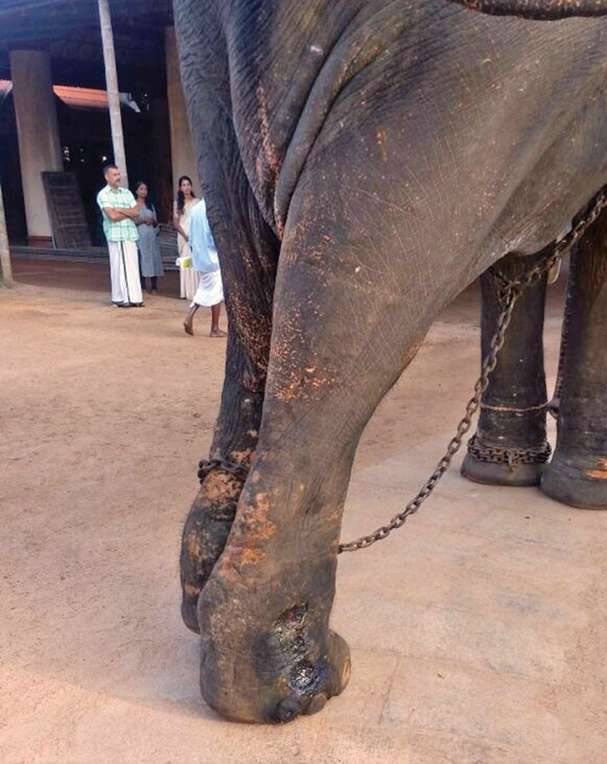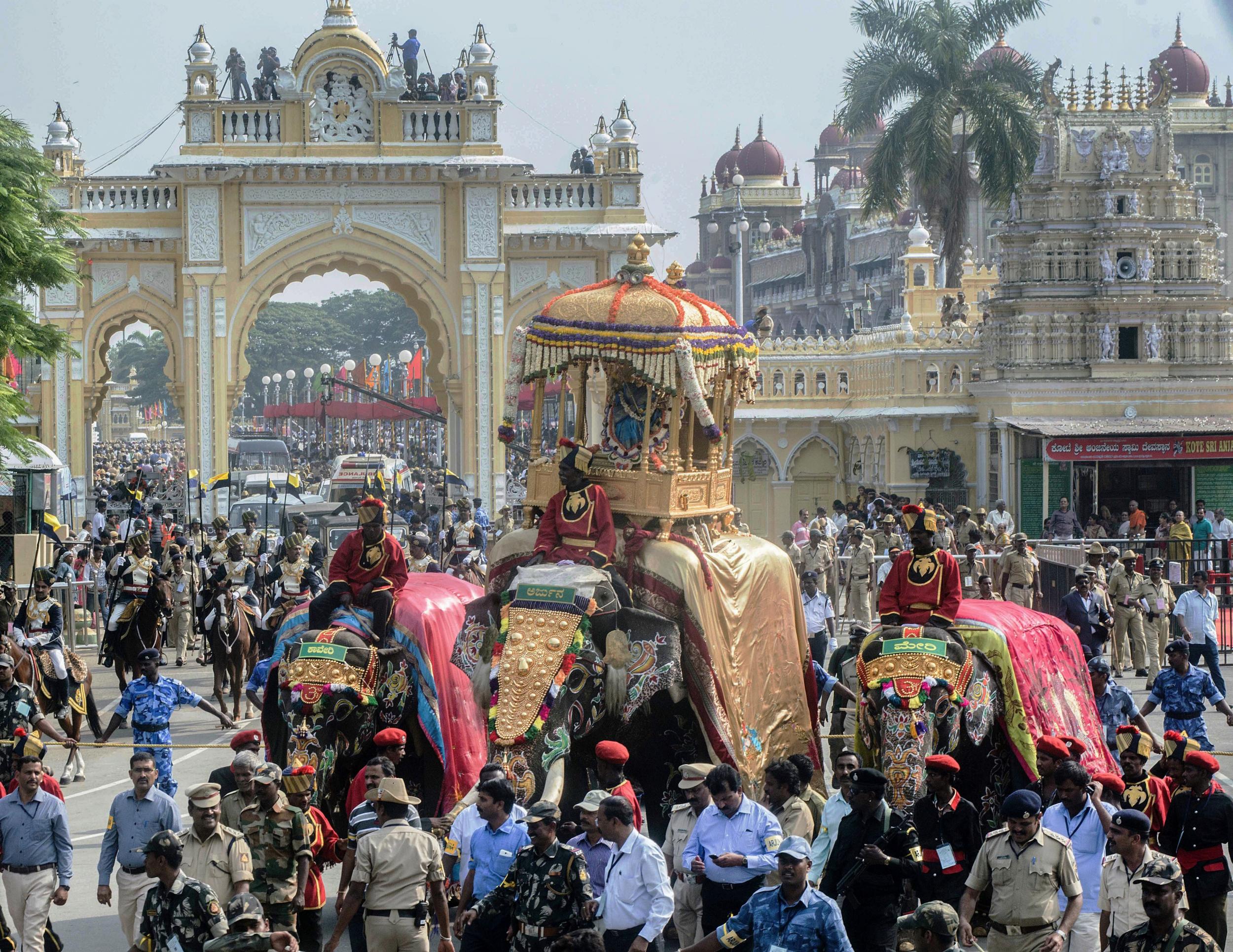Wildlife chiefs crack down on abusers of captive elephants in India
Officials act after public outcry over cruelty to hundreds of animals following The Independent’s exposé
Wildlife chiefs in the Indian state of Kerala have launched a crackdown on the way captive elephants are kept and treated after an outcry when The Independent exposed the intense cruelty inflicted upon them.
Heads of the state’s forest department are warning that anyone involved in cruelty to the animals will face “severe consequences” that may include having the elephant taken from them.
The alert is included in revised guidelines issued to elephant-owners and those involved in taking them to festivals, where they are shackled, beaten, ridden and prodded with sharp implements.
The animals – India’s icons – are painted and dressed in colourful decorations for parades and processions organised by religious temples, largely in the southern state of Kerala, where up to 500 are used this way.
Last month The Independent revealed how behind the glamour of the festivals, captive “temple” elephants are often tied to the spot by ropes or chains that eat into their skin; “trained” through being hit with metal rods or bullhooks; malnourished, overworked and deprived of medical care.
The new document admits “laxity” in implementing Kerala’s rules designed to protect the welfare of the animals.

The circular, written earlier this month by PK Kesavan, the chief conservator of forests and chief wildlife warden, says: “Of late, a large number of complaints are coming from members of the public at state/national and international levels about the ill treatment of captive elephants.”
It acknowledges more than 10 deaths this year – Kerala Suffering Elephants puts the tally at 12 – and admits this is “alleged to be due to careless handling of the animals as well as wilful negligence”.
The updated regulations set out a series of measures including:
- Anyone meting out cruelty will face “severe consequences” that will, for repeat offenders, include confiscating the elephant under their custody, reiterating a 2015 Supreme Court order
- when violations are noted, instructions will be issued in writing to the owner
- any elephants in high demand and likely to be overworked will be identified in each district and closely monitored
- people using elephants for festivals must register with district authorities, a process ensured by the state government
- animals may be transported only in registered vehicles
- each should have a valid fitness certificate issued by a vet
- movements should be recorded in a register so each elephant is not overworked
- bull elephants must not be provoked or put to work during the musth period (mating time, when males are stronger and restless) and musth should not be suppressed. Sufficient care and rest during musth “will be ensured”
- the forests committee will meet at least twice a year – once just before festival season, when all violators should be reported “so that necessary steps are taken for ensuring the safety of the animals as well as that of the public”
- another meeting will be just after the season to take stock of implementation of the rules
Wildlife wardens and forest chiefs discussed the problems at a meeting before issuing the new orders.
Kerala has the highest number of festival elephants in India – thought to be about 500. Action for Elephants UK (AfE) has branded the state “ground zero for elephant torture”, and has called their illegal treatment “the worst case of animal cruelty in the world”. The plight of the 150 captive elephants in neighbouring Tamil Nadu is feared to be just as bad.
For the six-month festival season, they are forced to walk for miles in searing temperatures on hot, stinging tar roads and ridden into noisy processions with fireworks.
Some are carted from one festival to another – up to hundreds of miles – while still chained.
Animal advocates say elephants are sensitive, intelligent and sociable creatures and rarely survive the “unrelenting neglect and torture” for a natural lifespan.
In the past seven years, 350 captive elephants have died. Often the water they are given falls short of the large quantities they drink in the wild, and many die of severe intestinal blockages.
Campaigners staged a protest outside the Indian High Commission in London, coinciding with prime minister Narendra Modi’s visit to Britain, pleading for abuses to be policed.
They said lucrative insurance claims provide incentives for owners to neglect their animals.

But the New Indian Express was concerned about the effect on tourism of the publicity about the elephants’ plight, saying the protest outside the High Commission in London added injury to insult.
“For the Kerala Tourism Department, it seems it is a case of one step forward, two steps back, while it is trying to brand and market the state as a paradise for holidaymakers,” the Express website said.
“State tourism director P Bala Kiran said this is a very serious issue and it will have long-lasting impact on the tourism sector of the state if not addressed properly.”
The Kerala Tourism Department has decided to make films of elephant care and majestic festivals featuring the culture and tradition of the state to counter the bad publicity, the paper reported.
Join our commenting forum
Join thought-provoking conversations, follow other Independent readers and see their replies
Comments
Bookmark popover
Removed from bookmarks